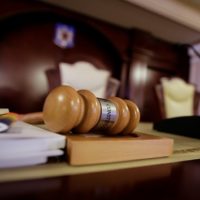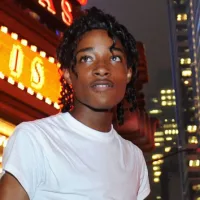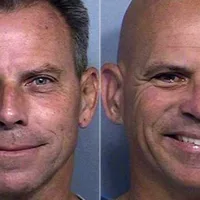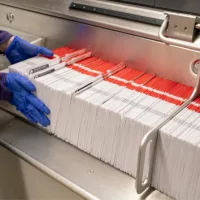
(NEW YORK) — Prosecutors rested their case on Monday in the federal trial of three former Minneapolis police officers charged with violating George Floyd’s civil rights during his fatal 2020 arrest.
The prosecution presented its case in roughly three weeks in spite of a recess being called for several days after one of the defendants tested positive for COVID-19. Prosecutors called many of the same witnesses who testified in the state trial of Derek Chauvin, the three defendants’ one-time senior officer, who was convicted of murdering Floyd by digging his knee in the back of the 46-year-old Black man’s neck for more than nine minutes.
Among the final slate of witnesses prosecutors called before wrapping up the evidence portion of their case was Dr. Andrew Baker, the chief Hennepin County medical examiner, who conducted the autopsy on Floyd and ruled his death a homicide.
Floyd’s cause of death was cardiopulmonary arrest complicating law enforcement subdual restraint and neck compression, Baker testified. He told the jury he intentionally didn’t watch the videos of Floyd’s death before he completed the autopsy because he didn’t want to have any preconceived notions about the case.
Prosecutors also called Dr. David Systrom, a specialist in pulmonary critical care and cardiology intensive care, as an expert witness. Systrom, a physician at Boston’s Brigham and Women’s Hospital, ruled out heart disease and a combination of fentanyl and methamphetamine found in Floyd’s system as possible causes of death.
Systrom testified that Floyd died from asphyxia caused by Chauvin’s knee on his neck and being restrained with his chest to the ground and his hands behind his back, impeding his ability to draw in enough air to breathe. He told the jury Floyd’s chance of survival “would have doubled or tripled” had he been given CPR right after he went into cardiac arrest, and would have been “close to 100%” had he been repositioned before he went into cardiac arrest.
Several training supervisors from the Minneapolis Police Department also took the witness stand and testified that fired Minneapolis police officers J. Alexander Kueng, 28, Thomas Lane, 38, and Tou Thao, 35, all appeared to ignore their training as Floyd became unconscious and Kueng was captured on police body-camera footage saying he couldn’t detect the man’s a pulse.
Officer Nicole Mackenzie, the department’s medical support coordinator, testified she personally instructed Lane and Kueng, both rookie police officers at the time of the episode with Floyd, in a police academy “emergency medical responder” class that covered first aid and ethics in care. She also said records show that Thao took a refresher course covering the same topics.
“If you can’t detect a pulse after about 10 seconds, then you should begin CPR,” MacKenzie testified, adding that her analysis of body-camera video showing the response of the three defendants toward Floyd’s alarming medical issues was “inconsistent” with their training.
One of the last witnesses to testify for the prosecution was Darnella Frazier, the teenage whose viral cellphone video of Floyd’s fatal arrest sparked nationwide protests and garnered her a 2021 Pulitzer Prize Special Citation.
Kueng, Lane and Thao are fighting charges stemming from their alleged roles in the deadly 2020 confrontation with Floyd.
All three are charged with using the “color of the law,” or their positions as police officers, to deprive Floyd of his civil rights by allegedly showing deliberate indifference to his medical needs as Chauvin kneeled on the back of the handcuffed man’s neck, ultimately killing him.
Kueng and Thao both face an additional charge alleging they knew Chauvin was kneeling on Floyd’s neck but did nothing to stop him. Lane, who appeared to express concern for Floyd’s well-being during the encounter, does not face the additional charge.
They have all pleaded not guilty.
The defense attorneys are expected to call several expert witnesses to counter allegations that the men ignored their training when they failed to provide medical assistance to Floyd when he was in physical distress and did nothing to stop Chauvin’s abuse.
During the prosecution’s case, inspector Katie Blackwell, the former head of training for the Minneapolis Police Department, spent three days on the witness stand and testified that the actions of Kueng, Lane and Thao during Floyd’s arrest were “inconsistent” with department policies.
“We have an obligation to stop another officer when force is used inappropriately or not required,” Blackwell testified.
During his opening statement in the trial being held in U.S. District Court in St. Paul, Minnesota, attorney Earl Gray promised jurors they would hear from his client, Lane, as part of the defense case.
If Lane testifies, he will be the first former police officer involved in the 2020 fatal arrest to publicly speak about his role in the incident. He is expected to tell jurors what was going through his mind while he helped hold Floyd down as Chauvin kneeled on the back of Floyd’s neck.
Attorneys for Thao and Kueng have not said if they also plan to take the witness stand.
Gray emphasized in his opening statement that Lane was “totally concerned and did everything he possibly could to help George Floyd.”
Gray told the jury that Lane was the only officer on the scene who asked about rolling Floyd on his side to help with his breathing or using a hobble device to restrain him instead. He said Lane also voiced his concerns that Floyd was exhibiting signs of “excited delirium,” a syndrome in which a subject displays wild agitation and violent behavior that can sometimes lead to death.
He also said Lane was the one who called an ambulance to the scene and was the sole officer to go in the ambulance and help the paramedics try to revive Floyd.
ABC News’ Janel Klein contributed to this report.
Copyright © 2022, ABC Audio. All rights reserved.















